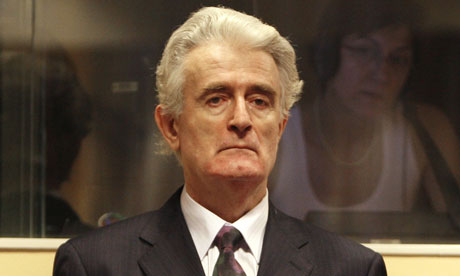CAIRO: Abdurrahman Mohammad Fachir was recently appointed Indonesian ambassador to Egypt, having arrived at the end of October in his first ambassadorial post.
Fachir is no stranger to the region as his first diplomatic post was in Baghdad in 1988. He also majored in Arabic literature in university. Other postings took him to New York and Malaysia before coming to Cairo.
Daily News Egypt met with Fachir to discuss many issues in common to both Indonesia and Egypt, and how Egypt at this point in time could look to events in Indonesia as a reference for its own current path.
*Daily News Egypt: How do you currently view Egyptian-Indonesian relations and how do you wish to improve them while you are here?
Abdurrahman Fachir: Egypt was one of the first prominent counties to recognize Indonesia in 1947 and last year we celebrated 60 years of diplomatic relations. We have common positions in many international issues, political, economic and social.
Bilaterally we have a good exchange of visits by dignitaries. All Indonesian Presidents except Habib have visited Egypt but [the visits are] quite unbalanced seeing as President Hosni Mubarak made his last visit in 1983. We want to see more dynamic bilateral relations in this exchange of visits by dignitaries. We hope that Egypt might also put some extra effort to strike a balance in this.
Economically, in 2000, our balance of trade was $150 million, and in 2006, we were around $360 million. I believe our respective potentials are far higher than our current trade relations.
*Egypt has announced plans to initiate a nuclear program. What could Indonesia do to help with the program?
Many countries have already offered their help, the US, France, Russia. They have submitted their offers to Egypt. In this [topic] we are at the same level. We also have this kind of plan, but the debate is still there. Egypt and Indonesia are members of the Nuclear Non-Proliferation Treaty and we are entitled to cooperate with countries on peaceful uses of nuclear energy. I don’t see Egypt facing any problems in terms of international regulations.
*There is international pressure to initiate greater democratic reform in Egypt and the government is hesitant because they fear with more democracy there could be a power struggle with Islamic groups. Indonesia is also a predominantly Muslim country with an Islamic presence, how would you pursue the democratic process?
Everything must be done in gradual steps. I believe there is justification for any country with how they proceed to an objective. In our case we have experience with the long process since our independence from colonial rule. After Suharto, we decided we had to move quicker towards democratic conditions in Indonesia. Again, we need consensus with the people. It is the obligation of the government to tell the people that we have to go through with what we have to do.
Every country has its own dynamic and situation. There are so many variables we have to put into consideration before we decide what to do.taking into consideration the aspiration of the people.
*Indonesia was one of Asia’s tiger economies, Egypt is going through a similar phase of unprecedented growth. How do you ensure it reaches the people?
You focus on the development of people. In Indonesia, we really want to see that the people are taking part in this development. It’s like fishing: you don’t give the people fish; you teach them how to fish. But sometimes you have to also give the fish in order for them to do the fishing. We also try to educate people to be productive; it is not just about giving them fish.
We all believe any government elected by the people has to take into consideration that they are working for the welfare of the people and they have to see how they make the people participate in this development.
*Terrorism is also an issue both countries have faced. How do you ensure that it doesn’t pose a threat to long-term stability?
First we have to convince other countries that these are our common enemies. We have to cooperate; individual countries cannot combat terrorism alone, because they are sometimes controlled from outside the country. Thirdly – and I believe this is the most important – you have to take care of the root causes. Sometimes it comes from injustice, poverty or from ignorance.
When we apply just governance, good governance, when we apply justice everywhere, when we combat poverty, when we want to see everybody taking part in the development, then I believe we can deal with this kind of problem.
Of course when we have incidents we have to deal with it according to the law, but in the meantime we have to take care of the causes as well. Sometimes it’s ignorance, they don’t know what they’re doing is wrong. That’s why education is important.
*Concerning Palestine, both countries have a similar viewpoint. How can Indonesia be more involved in the solution? What do you feel you can contribute?
Indonesia is a traditional supporter of Palestine, and from time to time we voice our position in any event, meetings or conference. We voice our support of the Palestinian people and we want to the see the Palestinians have an independent state very soon. It is clearly written in our constitution that we are against any occupation anywhere in the world.
This is our international obligation. We follow attentively any effort to find a solution and we are trying to take part in these efforts. We want to see we are part of the solution and we are ready.
*Indonesia recently removed subsidies from essential goods. Here there are still subsidies and there has been talk recently of lifting them. In what manner do you feel should it be done so as to not harm the average citizen?
In Indonesia the debate is still there, between parliamentarians, economists and the government. We told the people if you’re willing to share in this process of development we might benefit a lot. The government has to put aside quite a big amount of money for subsidies and this is not good for the wheel of development. We have to invest in infrastructure, education. If we pay a lot in subsides it might affect the progress of our development. But of course when it comes to a basic good, we must go along.
There are some calculations, of course. The very poor must benefit from this exercise. To reduce subsidies then you must channel money directly to this segment. We cannot escape from globalization and we have to compete with other countries. It’s bitter sometimes but we have to do it or we risk a lot. We have to see the percentage of our people who are below the poverty line and we have to take care of them also.


